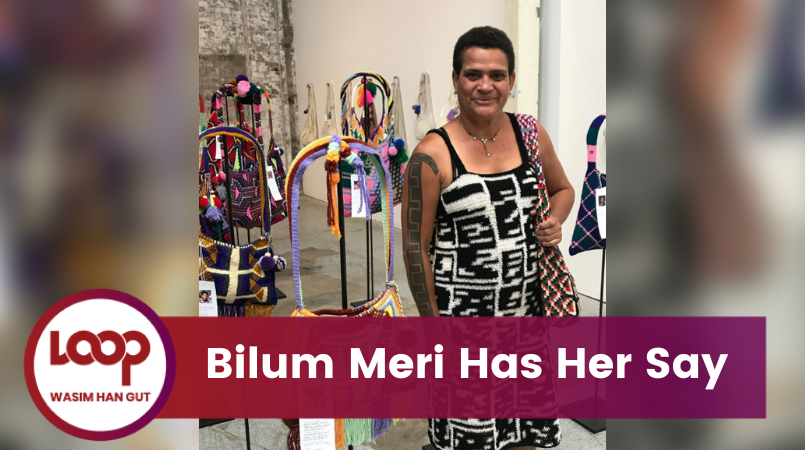
From humble beginnings, renowned bilum weaver Florence Jaukae Kamel is a Papua New Guinean artist and designer, known for her work in the traditional medium of bilum.
The plant fibres are woven into yarn to make bags or dresses and other garments. Kamel is known locally as the "Bilum Meri" and is an outspoken advocate for women's rights.
At the recent National Cultural Policy launch officiated by Prime Minister James Marape and National Cultural Commission board members, Florence was invited to speak as a representative of the Culture and Creative Industry.
The bilum symbolically represents PNG and is very significant about and to Papua New Guineans and on a very practical level it is what everybody uses from children to grown-ups.
In her opening remarks, Florence expressed her gratitude to NCC for the policy launch that will no doubt bring much help to the creative industry, artists and art itself in PNG.
“I have journeyed locally and abroad and have seen bilum used everywhere and I encountered that not everyone knows the story behind the bilum they carry as it is more or less used for practical reasons, nor do they know where it was made. This encouraged me to rise up and deliver the first ever bilum festival in Papua New Guinea with the support from the National Museum and the National Cultural Commission. This I did to safeguard the story and design in every fibre of the bilum,” Florence said with concern.
She added, “We have faced many challenges along the way concerning our art work with bilum that has led to counterfeit production of bilums and the print of cultural objects on fabric and this has infuriated us bilum mamas.”
There have been incidents with sacred cultural object designs being printed onto material and this has brought about issues.
Florence said, “We must look after our culture, unlike minerals that have a life span and will come and go, culture will always remain and will be there for us to turn to in looking after our country.”
“Culture is the closest to agriculture and both work together hand in hand and if you didn’t already know this culture is our identity, our strength and our guide and now with the policy in place to support and represents all in the Culture and Creative Industry.”
Awareness in educating Papua New Guineans in knowing the importance of this policy and knowing their story, custom and culture is important in our country.
